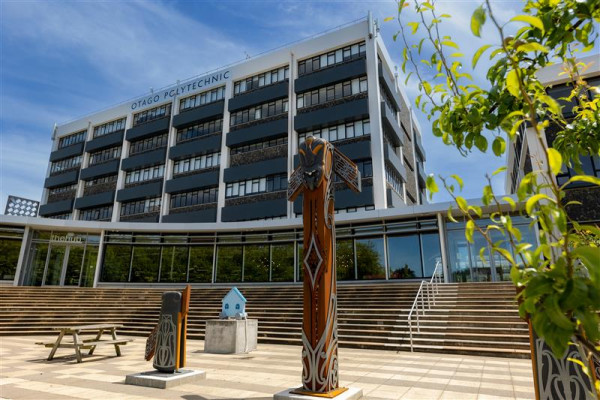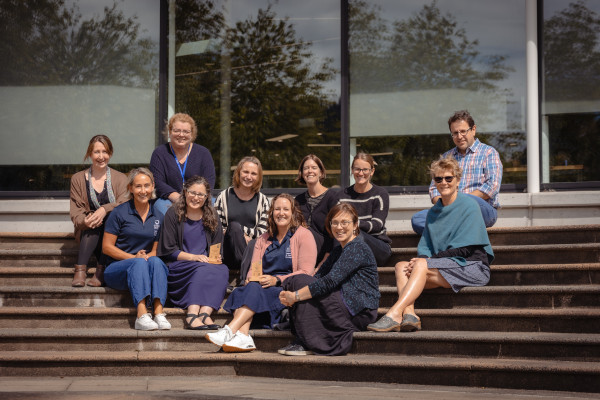- Tūhono home Hoki ki Tūhono
-
- Staff Directory
- Chief Executive Office Auckland International Office Corporate Services Finance Campus Services Functions and Catering Information Systems and Support Marketing, Communications and Engagement Learner Journey Academic Registry International Learner Services Te Punaka Ōwheo
- Learner Experience Academic Excellence Central Campus College of Community Development and Personal Wellbeing College of Engineering, Construction and Living Sciences College of Health College of Work Based Learning Open Education Resource/OERu Research and Postgraduate Studies Te Maru Pumanawa | College of Creative Practice and Enterprise
- Māori Development and Kaitohutohu Office People, Culture & Safety People and Culture Childcare Centre Te Ama Ako | Learning and Teaching Development Wellbeing and Safety Auckland Staff Directory Executive Office Academic Corporate Services Marketing and Business Development Human Resources Campus Quality and Programme Development
-
 Our people make a better world
Our people make a better world
We build the capabilities of individuals, organisations and communities and help them to realise their potential.
Staff Directory
-
- Tools
- Academic Integrity Declaration Form AIC applications dashboard Approved programmes Approved programme fees Centralised assessement repository Chemwatch Course evaluation and surveys CRM applications CRM customer service hub Delegations policy/process Disability and neurodiversity Dynamics 365 (CRM) EBS Ontrack EBS Report Email security personal portal Employment Matters / Solarworkplace / Performance reviews eTaxi eTV
- Financial variance reporting Hidden Disabilities Sunflower programme FCM travel intranet InPlace International entry requirements Knowledgebase articles Learner support dashboards Linkedin Learning Log a job with Marketing Login as an applicant Media consent form Microsoft 365 Moderation App Moodle OP Docs OP Docs - Publishing OP Image Libraries Performance Excellence Portal Pocket Lab (student healthcare) Product Evaluation Panel
- Policy Library Privacy Programme and course design/development Qualtrics XM RDS Remote access support portal Research Database Robertson Library Staff FAQs about graduation Status of Programmes Student intranet (Kāpehu) Study Abroad info for learners Taha Talks (videos for students) Tūhauora I Wellbeing resources Uniprint Vault Webexpenses Auckland tools
-
 Vault
Had an accident or near miss?
Log it here
Vault
Had an accident or near miss?
Log it here
-
- Communities
- Community AI Steering Committee Ally Network EBS Community of Interest EdTech Champions Health & Wellbeing Research Internal Evaluation Neurodiversity Professional Team Professoriate Proud@OP Student Support Website Advisory Group Web Champions Working under the Rainbow Project Learner Capability Trade Training Centre
- Committee Academic Committee Animals@OP Diversity and Equity Doctor of Professional Practice Committee Kaunihera Whakahaere - Leadership Council Internal Evaluation Learning & Teaching Leadership Team Library Committee Mental Health and Wellbeing Advisory Group Otago Polytechnic Board of Directors Pastoral Care Code Committee Programme Approvals Committee Research and Postgraduate Committee Research Ethics Committee Staff Subcommittee
- Think Tanks Mātauraka Our learners achieve educational success Pūtea Our financial success Tākata Our people, our team, our community Tiriti Our active commitment as a Treaty partner Tūroa Our commitment to be a sustainable and responsive organisation
-
 Create a community
Create a community
Do you have a community, committee or project that you'd like represented here?
Communities
-
- About OP
- Keep up to date All news All events All notices All blogs Share your info Create a news article Create an event Create a notice Create a blog
- Community and Partnerships Alumni and friends Education Foundation Operational information Academic calendar 2025 Academic calendar 2026 Current vacancies Dunedin campus map Our policies Topical FAQs
- Who we are About OP Commemorative sites Māori Strategic Framework OP merchandise Our history Our strategic priorities Pasifika Strategic Framework (2025-2030) Vision and Values Working for us OP job opportunities Wellbeing Calendar Working at OP
-
New Zealand: 0800 762 786
contact us
International: +64 3 477 3014
Multidisciplined student projects: A systems case study, leading to a regenerative implementation strategy
Author: William Early
Supervisors: Richard Mitchell
Early, W. M. (2023). Multidisciplined student projects: A systems case study, leading to a regenerative implementation strategy (Unpublished document submitted in partial fulfilment of the requirements for the degree of Master of Design). Otago Polytechnic | Te Pūkenga - New Zealand Institute of Skills and Technology https://doi.org/10.34074/thes.6035
Abstract
This thesis is a systems level evaluation of the multi-disciplined project (the electric vehicle design and build by students). The study looked at the immediate systems surrounding the build project, and identified some key systems: Capital (values), Knowledge, Core competence, Promotion, Student development. This led to the identification of a key weakness in the build project, student numbers. With the Covid 19 disruption in 2020, a further systems review looking at global issues, led to some solutions based around regenerative thinking principles. The most appealing ongoing approach to multidisciplined projects is to have them based on: Staff centered research in areas where research is already taking place and have high student numbers; Develop projects that require wider input from multiple disciplines; Utilize postgraduate and undergraduate students in appropriate level sub-project research. Looking at the surrounding systems and influences, leads to a deeper understanding of the problem, and to the issues resulting from a possible solution. The initial study looked from the inside out, mostly revealing the immediate environment of the build project. The second study started much wider, looking from outside in. This revealed trends that are happening globally, the issues they cause, and how better decisions can be made for local problems understanding global issues. The solution coming from the second study has a far better understanding of the problem from a systems perspective and has led to a far more considered solution. This systems approach is transferable to any project and is likely to enable better decisions based on better understandings of immediate and global issues. Using a systems level evaluation of the build project has led to a proposed solution that considers both immediate and global issues, leading to a solution that: Is centered in departments already rich in research; Potentially produces great staff and student outcomes; Expands the research activity in the polytechnic; Is truly multidisciplinary; Is ongoing; A systems level approach leads to better understandings of problems, which leads to better decision making. Framing what a good solution would be can only come from a well-informed educated background, and the principles of regenerative thinking provide this. Addressing future issues using a system based regenerative framework should lead to better solutions for people and the planet in future.
Key words: Dunedin (N.Z.), New Zealand, Otago Polytechnic, Te Pūkenga, electric vehicles, design practice, multi-disciplinary, collaborative research, student projects, engineering education, institutes of technology and polytechnics (ITPs), case studies
License
This thesis is available on a Creative Commons Attribution NonCommercial NoDerivatives 4.0 International license.
